The Sustainable Stores Building a More Eco-Friendly High Street
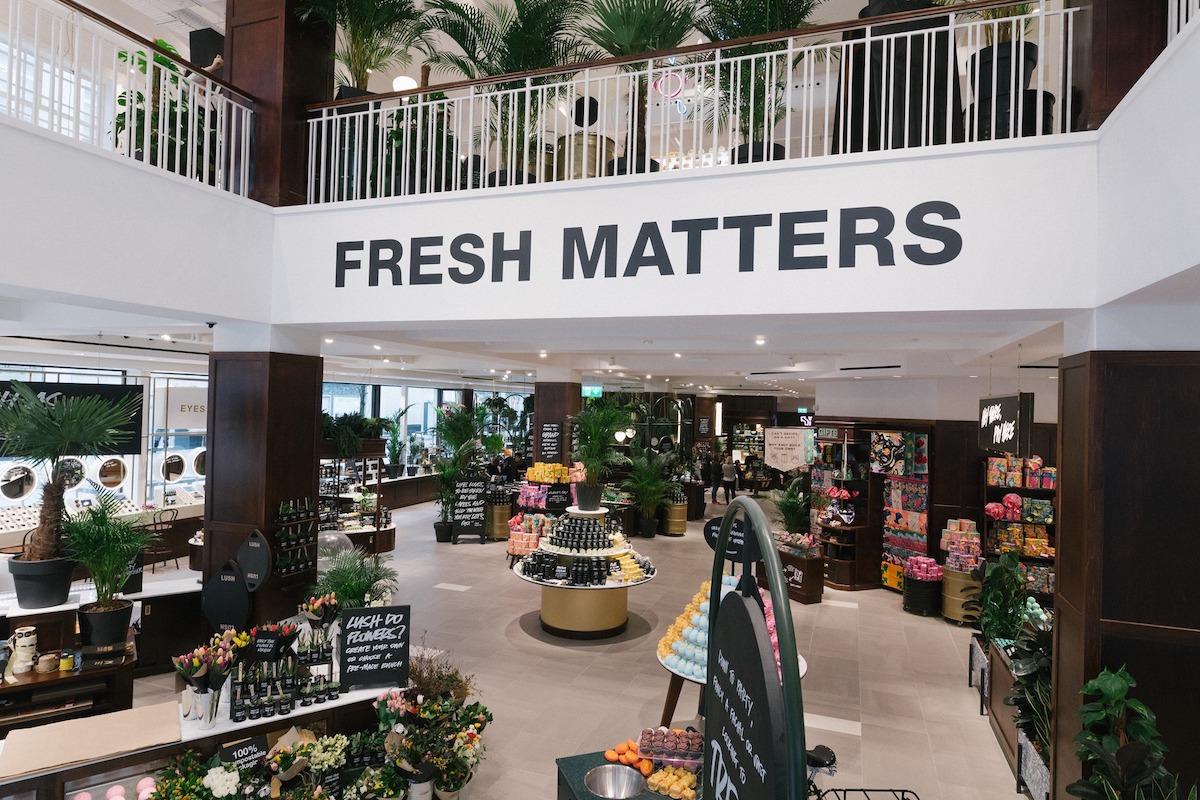
When it comes to the future of retail, eyes have firmly been online. And in sustainability terms, it’s largely been merited, with a 2013 study from MIT suggesting that online shopping is far more eco-friendly than shopping in brick-and-mortar stores.
However, the distribution, packaging and returns of online goods are still a major contributor to carbon emissions, and the high street isn’t prepared to just roll over. A number of stores are showing some substantial sustainability cred, either through the construction of the spaces or the brands that they stock. Here we highlight eight of them, from B Corp paradises made out of reclaimed materials to all-vegan sanctuaries well worth the pilgrimage.
Lush Liverpool
Fellow B Corp Lush has been wafting the scent of its bath bombs down the high street since 1995, and now has a whopping 951 stores globally. However it’s the cosmetics brand’s Liverpool store were interested in here, which also happens to be its biggest.
With enough space to fit over 9 million of those famous bath bombs, the fit on the inside of the space saw a keen focus on using sustainable materials like reclaimed FSC certified timbers and cradle-to-cradle silver tiles to keep that all-important carbon footprint down, while much of the brand’s products are either made in solid form to reduce the need for packaging, or — where packaging is required — out of innovative sources like recycled coffee cups.
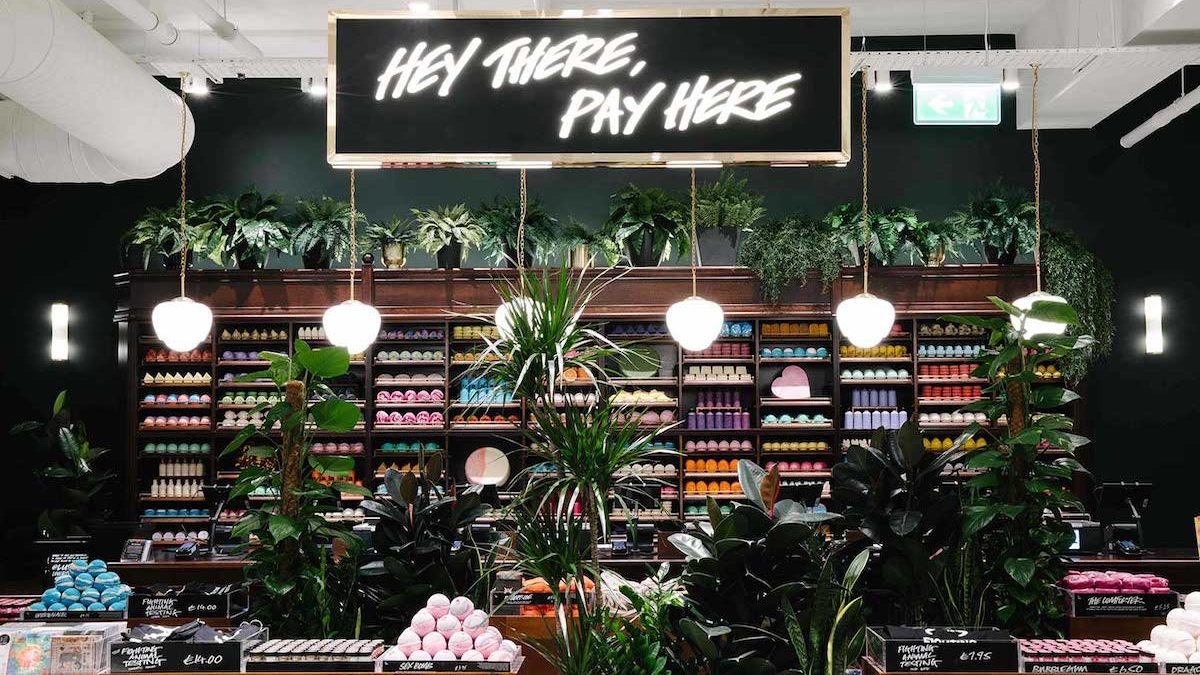
Karavan Eco
Founded in the early 1990s in south London, Karavan Eco is anything but a bandwagon jumper. Its store sits in idyllic East Dulwich and is a veritable haven for those that like to buy from brands with purpose. Inside you’ll find all manner of useful bits from recycled metal fire pits and make-your-own insect hotels for the rewilders among you, down to bamboo socks and copper water bottles. Neatly curated and admirably mission focused, it’s a testament to what makes independent shops in the UK so special.
Ikea Greenwich
Labyrinthine Scandi homeware chain Ikea went all out on the sustainable build of its new Greenwich store in east London. 75 percent of the roof has been covered in solar panels for example, while skylights aplenty reduce the need for artificial light inside. A system is also in place for harvesting rainwater, reducing the store’s water consumption by up to 50 percent, while an innovative geothermal system heats the shop floors up in winter, just as boreholes work to cool customers off in summer.
And it’s not just the in-store experience that has been made sustainable. Straying from its usual out-of-town presence, Ikea has positioned the Greenwich store just a 20 minute walk from the tube station, while the garden’s around the store and on the rooftop have been designed to support local wildlife.
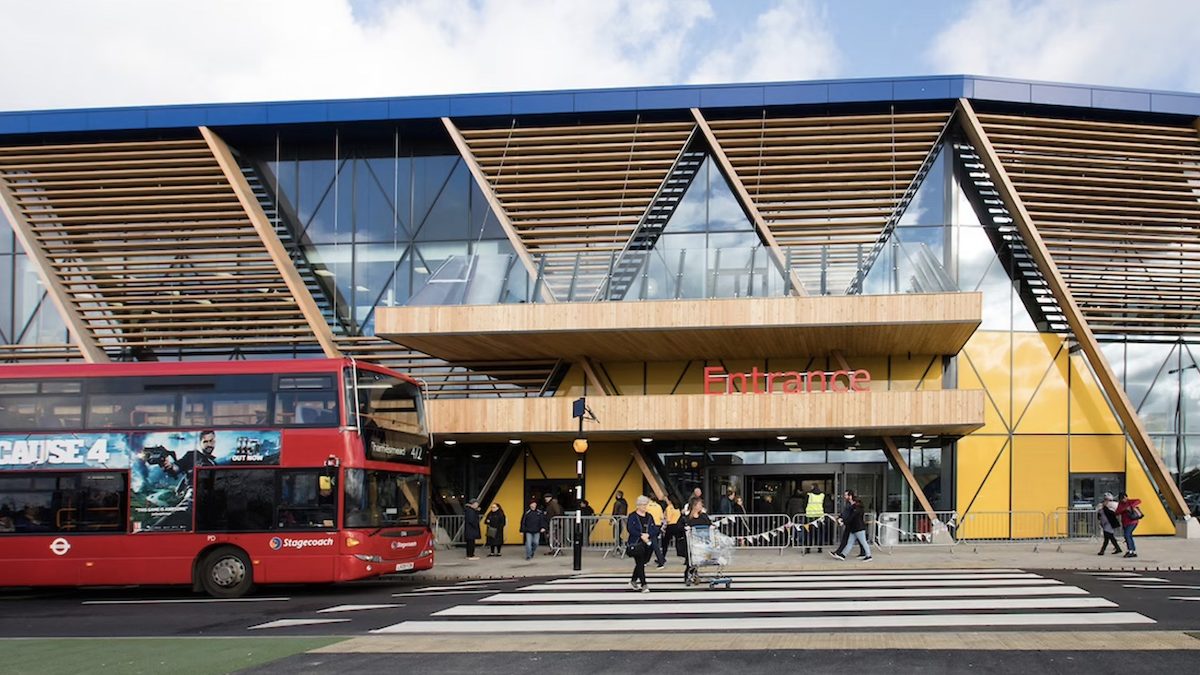
House of Green Beauty
Billed as a “one-stop green beauty destination”, House of Green Beauty is housed in a brightly-painted timber-fronted shop near the iconic Alexandra Palace. Small but mighty, what the store lacks in square footage, it more than makes up for in natural, organic and vegan skincare products and personal touch. All of the products inside come from NINI organics, you see, whose founder Alex can be regularly found in-store primed and ready to offer expert advice when needed.
Stella McCartney Flagship London
Stella McCartney is an unparalleled sustainable fashion innovator and as great an ambassador for high fashion eco-friendly style as they come. No surprise then that the designer’s flagship Old Bond Street store is similarly innovative, with a unique air-filtration technology which sucks up 95 percent of traffic fumes from one of the capital’s most polluted areas, and special mannequins that are 100 percent biodegradable.
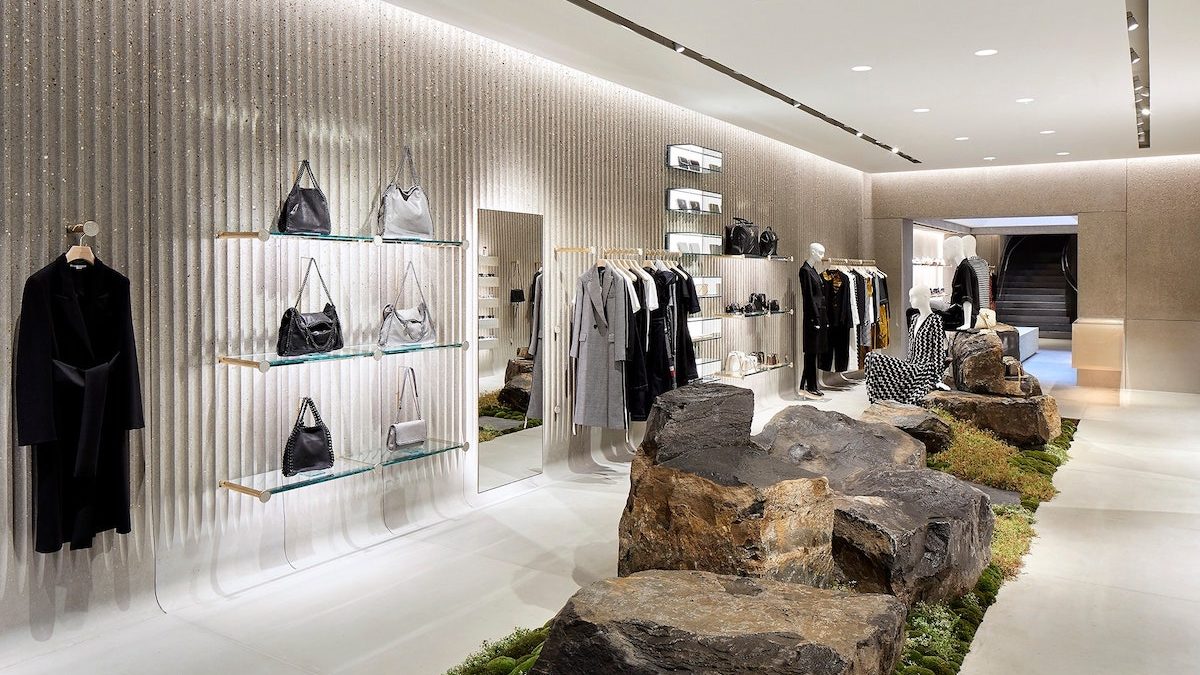
Sancho’s
Sat in the coastal town of Exeter, Sancho’s is part sustainable boutique, part ethical fashion pamphlet, with script all over the shop window detailing the number of ways in which the industry — and us as consumers — can clean up its act.
Over 100 ethical brands are showcased inside, including Girlfriend Collective, Bird Eyewear, and People Tree, while the shop takes a lot of care in selected brands that are properly certified, whether it be a cotton sweatshirt approved by the Global Organic Textile Standard or a vegan beauty range given the thumbs up from Peta.
BOTTLETOP
Launched in 2002 off the back of a much-buzzed-about campaign from luxury handbag maker Mulberry, BOTTLETOP use years of bag making know-how (one of the co-founders Roger Saul, is the founder of Mulberry) and a genius idea (mainly recycled bottled tops are a brilliant way to decorate a handbag), to create beautiful one-of-a-kind pieces with an important message behind them.
International fashion shows, art exhibitions, and costumes for the opening ceremony of the Rio Olympics followed, but arguably one of its most creative masterstrokes was its Regent Street store, the world’s first 3D printed store using waste plastic. A must-see pilgrimage for sustainable fashionistas, its art installation feel sets a blueprint for what the future of shopping could well look like.
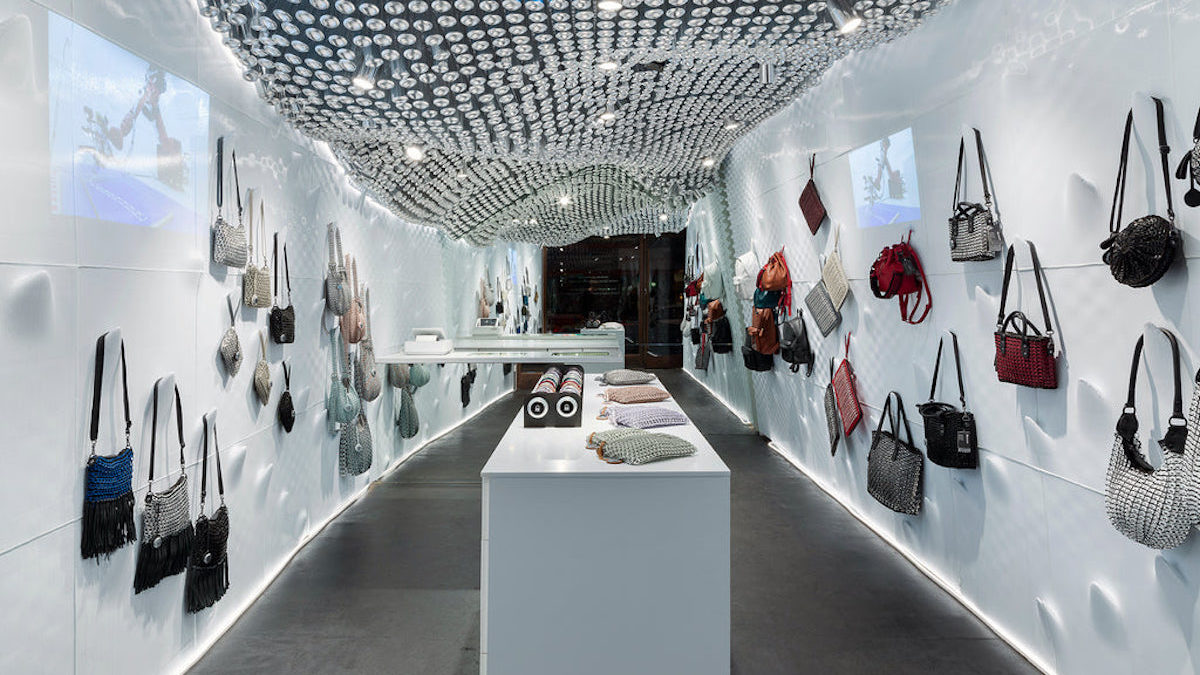
Paro Store
Amsterdam-based online retail platform Paro Store is a fascinating digital destination. Its aesthetic and appeal is unmistakably hip and happening — ceramic ear cuff, anyone? — while the standout feature of the site is the novel option of browsing products by ‘design code’ (artisan, local, circular, transparent) putting the sustainable element first and foremost in the shopper’s mind — a neat way to encourage ethical choices over rampant consumerism.


















